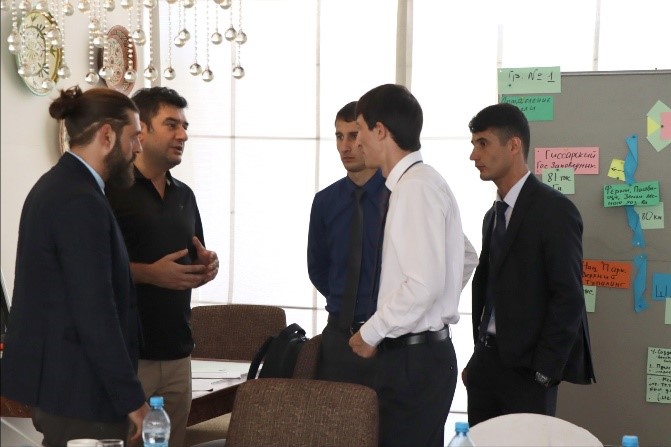The Regional Programme “Integrative and Climate-sensitive Land Use in Central Asia” (ILUCA) is part of Campaign “Green Climate Action Month” (GCAM), supported by Green Cluster of GIZ Tajikistan, which started on 21 August 2022 and will end on 17 September 2022. The initiative is launched in partnership with the Committee for Environmental Protection under the Government of the Republic of Tajikistan (CEP) to strengthen action on climate change and biodiversity conservation, including in Specially Protected Natural Areas, as well as other land uses.
Within the framework of GCAM, on August 31 to September 3 this year in Dushanbe, at the initiative of the Committee of Environmental Protection under the Government of the Republic of Tajikistan, in cooperation with the GIZ Regional ILUCA Programme, with the participation of experts from various institutions of the Republic of Uzbekistan, a round table on "The potential of transboundary cooperation in specially protected areas between the Republic of Tajikistan and the Republic of Uzbekistan" was held. The event was attended by representatives of relevant state authorities of the two countries.
Ms. Zarafo Sufijon, Deputy Chairperson of the Committee for Environmental Protection under the Government of the Republic of Tajikistan, in her opening speech, noted that the round table is a continuation of the practical activities under the Memorandum of Understanding in the field of environmental protection and effective environmental management between the Committee for Environmental Protection under the Government of the Republic of Tajikistan and the State Committee of the Republic of Uzbekistan on Ecology and Environmental Protection, signed on June 2, 2022.
The representative of the State Committee of the Republic of Uzbekistan on Ecology and Environmental Protection, Mr. Makhmudov Boburjon, in his speech, noted that Uzbekistan and Tajikistan are parties to a number of international conventions, including the UN Convention on Biological Diversity, the Bonn and Ramsar Conventions. It was noted that in the context of climate change in both countries it is necessary to make all possible efforts to preserve ecosystems, landscapes, flora and fauna. Significant results can be achieved only through regional cooperation.
During the round table, participants exchanged information on the status quo of the management of nature parks and nature reserves located in the transboundary territories of both countries and discussed further joint steps to develop transboundary cooperation.
From an international perspective, representative of the International Union for Conservation of Nature (IUCN), Mr. Pietro Sandini, introduced the participants to the important elements of international cooperation, highlighted the environmental, socio-economic and cultural benefits, and shared his experience on possible challenges for transboundary cooperation.
The Round Table was highly appreciated by all participants. Thus, it was agreed between them to continue the discussion in the near future with the adoption of concrete measures towards transboundary cooperation on the joint management and conservation of protected areas of the two countries. Following the agenda, the round table participants visited the Shirkent Historical and Natural Park with the purpose of getting acquainted with the status quo of this park.
The Regional Programme "Integrative and Climate-sensitive Land Use in Central Asia" (ILUCA), funded by the German Federal Ministry for Economic Cooperation and Development (BMZ), implemented by GIZ, aims to consolidate integrative land use management approaches at the regional and national levels, and improve implementation of measures of existing laws and policies in Central Asia
